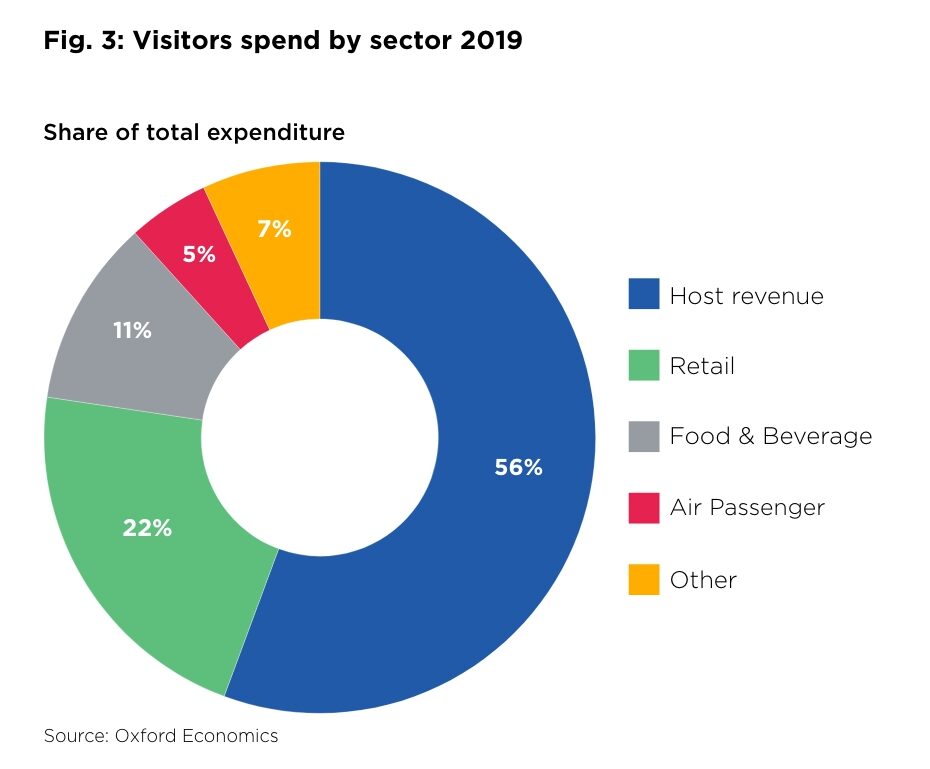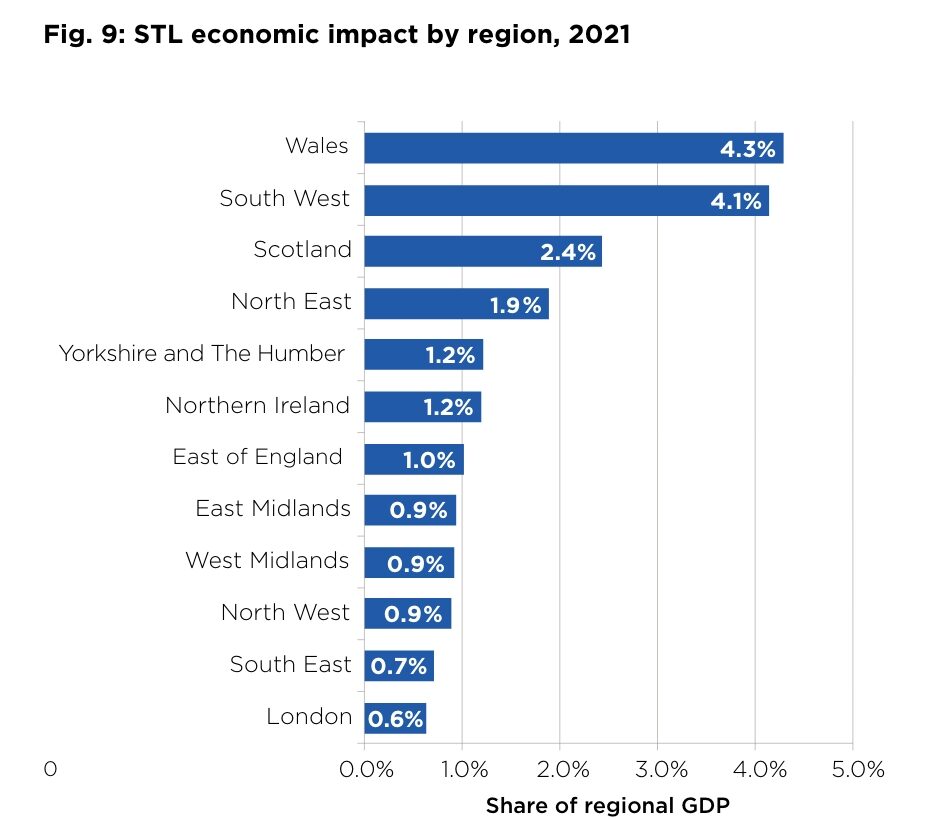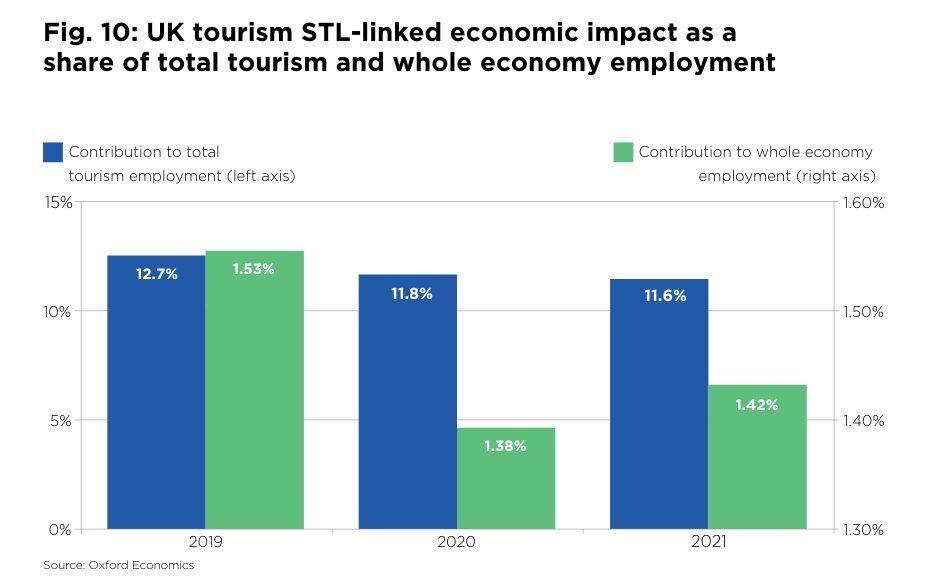The socio-economic impact of short-term lets in the UK
a review by Sykes Holiday Cottages and Oxford Economics
The original blog by Sykes Holiday Cottages has been published here: https://www.sykescottages.co.uk/blog/short-term-lets-economic-impact-report/
The UK short-term lets (STL) industry is a thriving sector that has experienced sudden growth over the last few years (especially pre-pandemic). This has resulted in an evidence gap with no high-quality data on the STL industry at a time when concerns about the industry’s effect on the UK have emerged.
A new report developed by Oxford Economics, commissioned by Sykes Holiday Cottages and in collaboration with the UK Short Term Accommodation Association (STAA), has now brought light into the sector. We hope that the evidence in this report will help the STAA to inform industry, local stakeholders, and policymakers, and form a basis for future decisions.
Does STL spending benefit local communities?
The share of visitor spending linked to STL activity was incredibly resilient throughout the pandemic – accounting for 23% of total spending by tourists in 2021, compared to 14% in 2019. Visitor spending on STLs benefits local communities directly, with 56% of spending on an STL going directly to the host, 22% to local retailers, and 11% to the food and beverage sector in a typical year like 2019. Some regional economies are especially reliant on STL spending, including South West England and Wales, where this spending constitutes up to 4% of local GDP.


What does this mean in terms of overall economic impact?
In total, the STL industry contributed £14.1bn through direct spending to the UK’s GDP in 2021, whilst indirect and induced spending contributed a further £6 billion and £7.6 billion respectively. This represented 1.4% of total UK GDP last year. The STL sector is becoming ever more important, and in 2021 accounted for 24% of the total contribution to GDP from the tourism sector (11% more than in 2019).
What about jobs?
STL-linked activities supported almost 500,000 jobs in 2021, both directly (in firms and sectors where visitors spend money) and indirectly (across businesses that supply goods and services to these tourist-facing firms as well as to hosts). The job creation power of our industry is especially vital in rural areas, where around 383,000 jobs (77% of total STL-related employment) are generated.

Conclusion
The STL industry is a vital motor of growth across different regions and for the UK as a whole. The demand for the sector is ever increasing, and year by year, it assumes a more prominent position in the tourism industry. Spending linked to STLs benefits local businesses and creates local jobs. This is especially the case in rural areas across the UK, where other employment opportunities can be hard to come by.
This new report takes important steps towards closing the data gap on the contribution of our industry, and we hope that it will guide those seeking to weigh up the potential social and economic trade-offs associated with new regulations to consider just how essential short-term letting is to communities across the UK.
